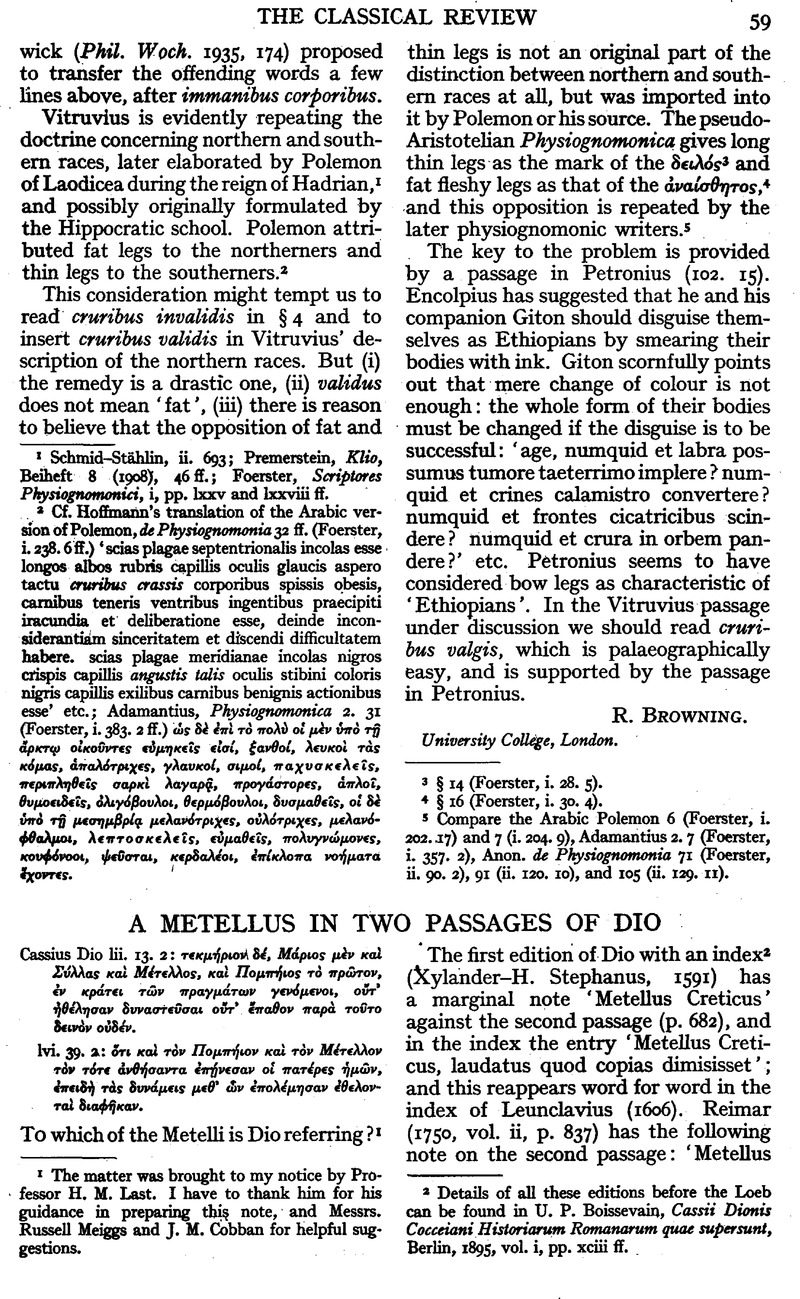No CrossRef data available.
Published online by Cambridge University Press: 27 October 2009

page 59 note 1 The matter was brought to my notice by Professor H. M. Last. I have to thank him for his guidance in preparing this note, and Messrs. Russell Meiggs and J. M. Cobban for helpful suggestions.
page 59 note 2 Details of all these editions before the Loeb can be found in U. P. Boissevain, Cassii Dionis Cocceiani Historiarum Romanarum quae supersunt, Berlin, 1895, vol. i, pp. xciii ff.
page 60 note 1 Cicero, de Imp. Cn. Pomp. 35 and 46.
page 60 note 2 Dio xxxvi. 45. I ff.
page 60 note 3 Velleius ii. 34. 1 and 2; 40. 5.
page 60 note 4 Floras i. 42.6 ( = iii. 7 ult.). The whole chapter shows that the Cretan war was a bad business, and reflected little credit on anyone.
page 60 note 5 A conclusion which is confirmed by Sallust, B.C. 30.4: ‘ei utrique [Metellus and Q. Marcius Rex] ad urbem imperatores erant, inpediti ne triumpharent calumnia paucorum.’
page 60 note 6 Sallust, B.J. 86. 5.
page 60 note 7 Cf. the Loeb note on lvi. 39. 2. Of course, if ϒόϒϵ is pressed to mean strictly ‘at the same date’, the context must be that of 63–62 B.C. and the Metellus must be Creticus. But Dio's use of ϒόϒϵ equally well sanctions a looser interpretation. See Boissevain's edition, vol. v, Index Graecitatis, s.v. ϒόϒϵ.
page 61 note 1 Plutarch, Mar. 42. 5: ἥκον ὡς ⋯κεῖνον ἂρχεινδε⋯μενοι κα⋯ σᾡζειν τ⋯ν π⋯λιν.
page 61 note 2 Sallust, Hist, ii, frag. 70 (M.); Val. Max. ix. 1.5.
page 61 note 3 Sallust, Hist, iv, frag. 49 (M.): ‘exercitum dimisit ut primum Alpis digressus est.’ The attribution of this fragment to Pius and to this occasion is a conjecture; but it is difficult to see to whom else it could refer.
page 61 note 4 Velleius ii. 30. 2.
page 61 note 5 See especially Val. Max. v. 2. 7: ‘principatuquem procul dubio obtinebat.’ Cicero speaks of Pius, for his own purposes, of course, as ‘virsanctissimus et summa religione ac modestia’ in Pro Balbo 22. 50.